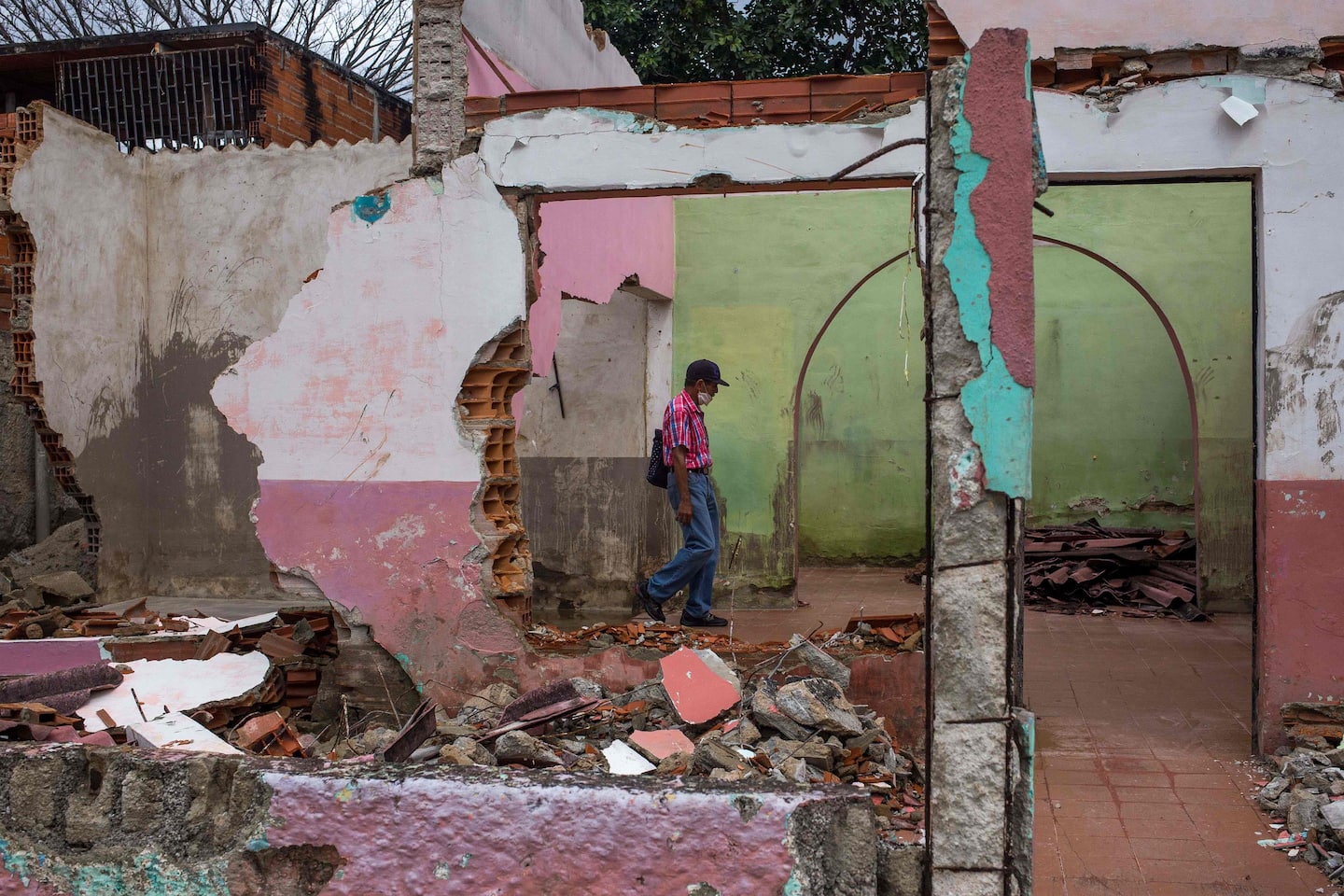The Hague should formally investigate Venezuelan ‘crimes against humanity,’ OAS says

The Washington, D.C.-based organization, whose 35 members include most nations in the Western Hemisphere, published a report Wednesday that argues “crimes against humanity” within Venezuela, including extrajudicial murder and the torture of civilians, have only worsened since the OAS first published such findings in 2018.
“The regime of Nicolás Maduro continues to repress dissent and attack perceived opponents through excessive force, arbitrary detention, torture, and extrajudicial killings,” the report says. “Meanwhile, the regime has not only protected perpetrators from any real accountability, but often promoted them for their loyalty to the regime, especially the high-level officials who are the most culpable.”
The report estimated that between 2014 and 2020 in Venezuela, Venezuelan security forces or paramilitary groups committed 18,093 murders, detained 15,501 people in the country for arbitrary reasons and tortured hundreds.
In May 2018, the OAS released similarly condemnatory findings, issuing allegations that “there were reasonable grounds to believe crimes against humanity had been committed in Venezuela,” backed by evidence in testimony.
“Unfortunately, since [the 2018] Report was published, the alleged crimes against humanity have only broadened in scale and depth, targeting millions of Venezuelans, both directly and indirectly,” said the OAS in its Wednesday update.
The group is not alone in making such allegations. In September, the United Nations’ top human rights body accused Maduro and his inner circle of participating in “crimes against humanity.” The U.N. Human Rights Council also called for the findings to be probed by international courts.
While the ICC opened an examination into the situation in Venezuela in February 2018, it has not launched a formal investigation, as the OAS has urged.
“The very slow pace of the review appears utterly unaffected by the widespread, severe, and devastating crimes being committed,” the report says.
The ICC did not respond to a request for comment.
The court’s chief prosecutor, Fatou Bensouda, has “acted in ways that are really inexplicable in failing to move to a full investigation,” Jared Genser, one of the report’s authors and OAS special adviser on the responsibility to protect, told The Washington Post. He said while Bensouda “articulated in policy documents from her office that one of the key goals includes promoting prevention and deterrence and putting perpetrators on notice,” she has “been silent on Venezuela.”
As one example, the report noted that in 2019, the prosecutor’s report on the situation stated 70 people in Venezuela had been killed by security forces or pro-government armed civilians between April and July 2017, and 30 to 47 people were killed by security forces or pro-government armed civilians from Jan. 21 to Jan. 25, 2019. The OAS, however, had in its 2018 report cited at least 8,292 extrajudicial executions since 2014, a figure corroborated by former Venezuelan attorney general Luisa Ortega Díaz, who defected from the Maduro regime in 2017.
“It is stunning and inexplicable that the prosecutor has repeatedly understated the scale and scope of the abuses,” Genser said. “You don’t just make a mistake and understate the severity of extrajudicial killings. That doesn’t happen by some negligence.”
“The regime in Venezuela has been allowed to operate with impunity for far too long,” said OAS Secretary General Luis Almagro at a Wednesday news conference presenting the report. “The court has so far failed the Venezuelan people.”
The ICC, founded in 1998 as an institution to hold perpetrators of global atrocities accountable, has been accused of bias and inaction in the past. Its limited power means in most cases, its investigations serve mostly as deterrents and it can become the target of geopolitical grandstanding.
Maduro’s government brought its own case to the ICC in February, alleging widespread sanctions from the U.S. government were resulting in devastation in the country amounting to a “crime against humanity” and a “weapon of mass destruction.”
The crisis in Venezuela has drawn outrage and concern from many nations and human rights groups for years. Under Maduro’s authoritarian rule, the country has plunged into poverty, sparking a mass migration and widespread disease and hunger.
The left-wing autocrat who succeeded Hugo Chávez in 2013 has tightened his grip on power, stacking the country’s courts, punishing dissent and using the Venezuelan military to all but crush a budding opposition movement.
The coronavirus pandemic has worsened the situation, with rights groups saying the government is using the virus as an excuse to crack down on dissidents.
For more than a year, the United States and dozens of other countries have recognized opposition leader Juan Guaidó as the leader of the country. But Maduro maintains power.
President Trump has taken a hard line on Venezuela, even considering a military intervention to oust Maduro. The OAS, has also threatened to use military force against the left-wing dictatorship.
This report has been updated.






